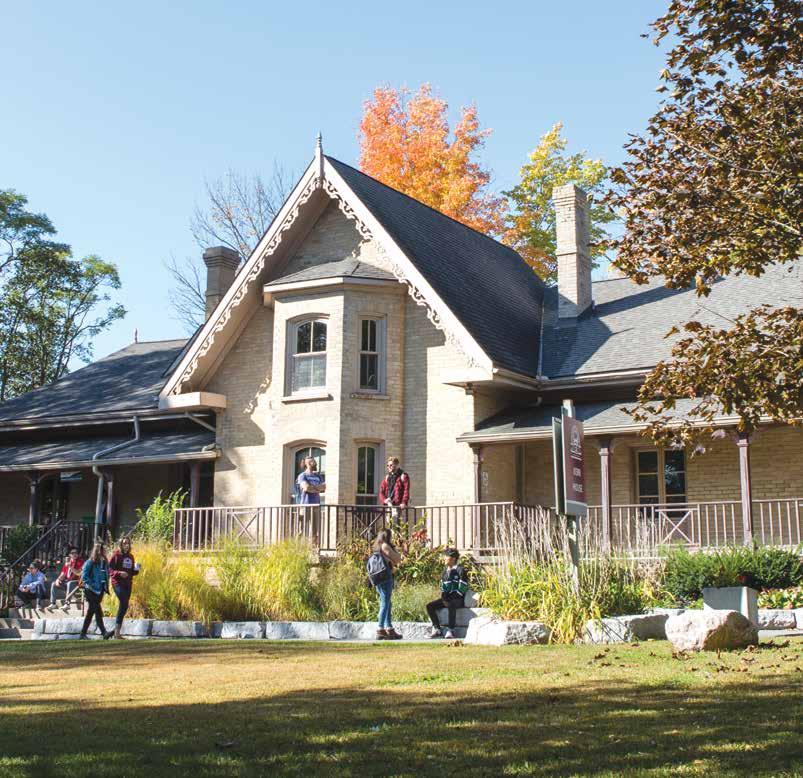
3 minute read
In Memoriam
The Gift of Language
A first-generation Canadian, Ben has worked as a physician in numerous First Nations communities across Canada over the past 30 years.
“I learned just enough Ojibwe to communicate with elders who didn’t speak English in order to conduct basic medical examinations,” he explains. “That gave me a glimpse of the rich cultural heritage and way of thinking that is embedded in the language.”
As a child immigrant to Canada, Ben came close to losing his mother tongue growing up. “It took several chance encounters with white persons fluent in Chinese to make me realize the value of what I had lost,” he recalls. “I spent much of my early adult life re-learning Cantonese, and now I’m happy to be able to pass on to my children our shared language and culture. I hope my story might encourage others to do the same with their children.”
Ben’s current work in global health has demanded that he study each of the six UN official languages, to understand better the communities he works with. “My work and personal experiences have shown me how critical languages are to one’s sense of culture and identity. That’s why I’m excited to do my small part in contributing to our national process of reconciliation by supporting Trent in the survival of Indigenous languages, because Trent is a national leader in their study and preservation.”
Giving as a Family
As a family that cares as deeply as Julie, Ben, Adin and Ethan, philanthropy comes naturally.
“While we’ve always tithed, we recognize that the more we’ve been given, the more we can give,” says Julie. “We want to be good stewards of our resources. As we discussed the distribution of our estate, we focused on what lasting impact we could have long after we’re gone. Through our bequests, we will finance the values we lived by to amplify their influence. Our sons appreciate our commitment to allocate funds to achieve these objectives and they recognize our desire to share with others.”
It’s also natural that they both want to support postsecondary schooling. “We’re giving to the universities we attended because we value higher education and because they are accountable for managing funds responsibly,” says Julie. “Trent is a recognized leader in environmental studies and so it is our privilege to contribute to a climate change catalyst fund. Climate change is the global crisis of our era and we are pleased to help finance innovative research in mitigating its effects and to bring awareness to this issue through an endowed lectureship. Likewise, Trent’s commitment to Indigenous studies is unparalleled. It is a genuine honour to contribute to this program by endowing a prize in Indigenous languages. It gives us tremendous pleasure and satisfaction to support these learning opportunities at Trent.”
To learn more about ways to create your legacy at Trent University, or to let us know that you have already taken this thoughtful step, please visit trentu.ca/legacy or contact Donna Doherty, senior philanthropic manager, at 705-748-1011 x7208 or donnadoherty@trentu.ca.
William (Alex) Campbell ’68 Geralyn M. Counsell ’77 William G. Davis, Honorary Alumnus Donald W. Down ’73 Melissa George ’06 Peter J. Howard ’72 Lesley L. Hulse ’70 John R. Hunter ’80 Suha G. Jarrar ’08 Carole A. Marriner ’70 Ainsley E. Moore ’85 Mirelle Nicholas ’10 Elisabeth M. Orsten, Professor Emerita Heather L. Penny ’82 Helen M. Ray ’69 Raymond M. Schafer, Honorary Alumnus Michael L. Whitaker ’75 Janine A. Williams ’83
Where memories and inspiration intersect
Inspire the next generation of #TrentUBound students with your tales of learning and encourage them to visit Trent in person or online. Here they can explore our dynamic campus communities in Durham and Peterborough, check out our sector-leading facilities and learn about exciting new programs like Climate Change Science & Policy, Criminology, Medical Professional Stream, Logistics & Supply Chain Management, and Law.










